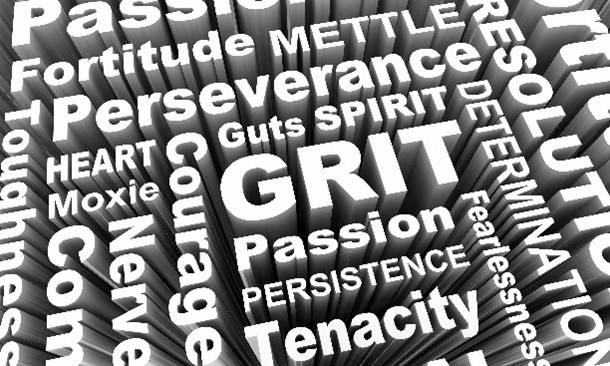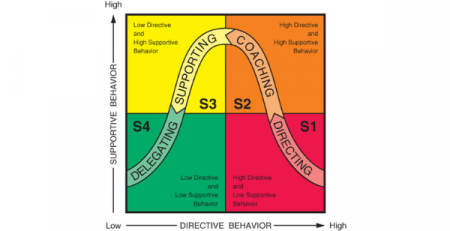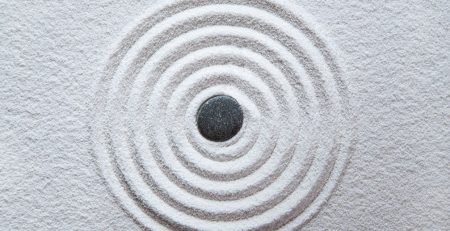GRIT (aka Mental Toughness)
An Essential Trait for Successful Tech Leaders
Being gritty, along with adopting sound self-care strategies, is now more than ever a must-have requirement for successful tech leaders.
In a post-pandemic world where the VUCA reality (volatility, uncertainty, complexity, and ambiguity) has been taken to a whole new level, GRIT has become an indispensable leadership trait. Tech teams are in the spotlight and are expected to deliver change, fast. The great resignation not only invited us to reflect on our core values but also exacerbated the tech war for talent. Economies are uncertain. Workplaces are shifting. Norms are being challenged. Disruptions are constant. Time is compressed. Energy management is a concern for most teams. The risk of burnout has increased significantly and it is now hitting C-level IT executives.
Background
While the term ‘Mental Toughness’ emerged in the context of sports training to describe a set of attributes that allows a person to cope with difficult situations and emerge without losing confidence, the term ‘grit’ was coined by Angela Duckworth*, as a result of her extensive research which reveals that grit, not IQ, is a predictor of success in many demanding fields.
*Duckworth is a distinguished Professor of Psychology at the University of Pennsylvania, CEO of Character Lab and author of Grit: The Power of Passion and Perseverance. She is a former McKinsey management consultant and her TED talk is among the most-viewed of all time (over a million views).

What is grit?
In the words of Duckworth, grit is having passion and perseverance for very long-term goals. It’s about having stamina and sticking to your future, not just for the week, not just for the month, but for years and working really hard to make that future a reality. Grit is about sustained, consistent effort toward a goal even when we struggle, falter, or temporarily fail.
Grit vs resilience
“Fall down seven times, get up eight.” – Japanese proverb
Resilience can be defined as our ability to bounce back in the face of adversity. It requires a certain degree of grounded optimism and hope. Some people are more resilient than others. Like grit, resilience is a characteristic that can be developed. As Kori Miller described:
“Grit is the engine that moves us toward our goal. Resilience is the oil that keeps the engine moving.”
The 5 elements of grit
Various studies have shown that perseverance is an essential quality for success in life. It often tops aptitude and raw talent and is a more accurate predictor of achievement. Duckworth herself is the first to say that the essence of grit remains elusive. But the five common characteristics of grit listed below can make things clearer:
- Courage – You might have heard before that courage is like a muscle; it must be exercised daily. Think about your ability to manage the fear of failure as an imperative and a predicator of success. The supremely gritty are not afraid to tank, but rather embrace it as part of a process. They understand that there are valuable lessons in defeat and that the vulnerability of perseverance is requisite for high achievement.
- Conscientiousness – It is defined as the personality trait of being thorough, careful, or vigilant. Generally, the conscientious have strong moral principles and values: they want to do the right thing and opinions and beliefs on any subject are rarely held lightly. The conscientious person is dedicated to work and is capable of intense, single-minded effort.
- Excellence – In general, gritty people don’t seek perfection, but instead strive for excellence. Excellence is an attitude, not an end game. The word excellence is derived from the Greek word Arête which is bound with the notion of fulfillment of purpose and is closely associated with virtue. Excellence is far more forgiving than perfectionism, allowing and embracing failure and vulnerability on the ongoing quest for improvement.
- Perseverance – Achievement is often the product of talent and effort. As Malcolm Gladwell suggested in his best-selling book Outliers, some similarities among the best of the best (think Beatles, Bill Gates and Steve Jobs) were clear goals and lots of practice, typically over 10,000 hours to master their craft.
- Resilience – In his book Resilience, Why Things Bounce Back, Andrew Zolli defined resilience as “the ability of people, communities, and systems to maintain their core purpose and integrity among unforeseen shocks and surprises.” Gritty people believe, “everything will be alright in the end, and if it is not alright, it is not the end.”
Our story, values and purpose | The fuel for grit
According to Shannon Huffman Polson, the first woman to fly the Apache attack helicopter in the US Army, grit starts with our ability to own our own story. This is the basis for grit. In other words, the ability to look back at our past to uncover our core values and reveal our purpose which can be used as raw material to re-shape our narrative. Her belief is that each leader has control of their own story. It does not matter what is handed to us. We get to shape that material and decide our trajectory. Knowing your purpose is crucial for leaders to navigate well in times of change and uncertainty. Getting clarity on one’s purpose and core values is often the result of a leadership crucible experience.
Leadership crucibles
Extraordinary leaders find meaning and learn from the most negative events. Like a phoenix rising from ashes they emerge from adversity stronger, more confident in themselves and their purpose and more committed to their work. Such transformative events are called crucibles, a severe test or trial. Crucibles are intense, often dramatic and always unplanned.
Crucibles force leaders into a deep self-reflection, whether they examine their values or question their assumptions. They can take many forms. Some are violent life-threatening events; others are more prosaic episodes of self-doubt. Regardless of the crucible’s nature, successful leaders can create a narrative around it. A story about how they were challenged, how they met the challenge and became better leaders.
The word crucible refers to the vessel medieval alchemists used in their attempt to turn their base metals into gold. By definition, a crucible is a transformational experience through which an individual comes to a new or altered sense of identity.

Growth mindset
One effective way to increase your grit factor is by cultivating a growth mindset*.
A growth mindset is about being dedicated to hard work, effort, persistence and staying curious, while learning and seeking new challenges. A growth mindset can be learnt. It helps people to be motivated and to succeed. People with a growth mindset hold the belief that your basic qualities are things you can cultivate through your efforts; the hand you’re dealt in life is just a starting point for your development. Those with growth mindsets relish moments of failure as they provide obstacles and challenges that in turn provide opportunities to grow and develop.
*The Fixed and Growth Mindset theory was developed by Dr. Carol Dweck, PhD, Professor of Psychology at Stanford University.
How gritty are you?
We are born with different levels of grit, but Duckworth believes that it is a trait we can build through experience.
Find out your grit score in less than 5 minutes by completing the survey designed by Angela Duckworth. Visit https://angeladuckworth.com/grit-scale/
References
• Organisational GRIT – https://hbr.org/2018/09/organizational-grit
• The GRIT Factor – https://hbr.org/webinar/2020/06/the-grit-factor-building-courage-resilience-and-leadership
• What is GRIT? These are the 5 characteristics – https://www.sacap.edu.za/blog/applied-psychology/what-is-grit/
• 5 Characteristics of GRIT – How many do you have? – https://www.forbes.com/sites/margaretperlis/2013/10/29/5-characteristics-of-grit-what-it-is-why-you-need-it-and-do-you-have-it/?sh=6bcd9b364f7b
• 5 Ways to develop a growth mindset using resilience and grit – https://positivepsychology.com/5-ways-develop-grit-resilience/#hero-single
• Perseverance in Psychology – https://positivepsychology.com/perseverance/
• Grit: A complete guide on Being mentally tough – https://jamesclear.com/grit
• What is GRIT and Do you have it? – https://www.psychologytoday.com/au/blog/cutting-edge-leadership/202204/what-is-grit-and-do-you-have-it
• 7 Habits of People with remarkable mental toughness – https://www.inc.com/jeff-haden/7-habits-of-people-with-remarkable-mental-toughness.html
• 13 Habits of Mentally Tough People – https://www.forbes.com/sites/brentgleeson/2020/06/24/13-habits-of-mentally-tough-people/?sh=40e815be5d4d
• HBR’s 10 Must Reads on Mental Toughness – https://www.goodreads.com/work/quotes/57731688-hbr-s-10-must-reads-on-mental-toughness












Leave a Reply